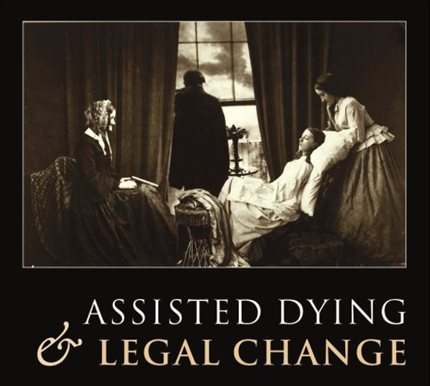Should Assisted Dying be Legalised?

Whether assisted dying should be legalised is often treated as an ethical question transcending national boundaries and legal systems. Work in this field is dominated by partisan appeals by proponents or opponents of legalisation.
In contrast, Professor Penney Lewis’s comparative research on legal change on assisted dying highlights the central importance of the choice of legal route in shaping regulatory regimes, evaluates the impact of legalisation on non-voluntary euthanasia (the ‘slippery slope’ argument) and assesses the effectiveness of regulation in permissive jurisdictions. Her critique of the unsatisfactory legal position in the UK coupled with expert interventions have shaped and informed policy debate, and directly influenced the campaign to legalise assisted suicide and ongoing judicial challenges to the current position. Elsewhere, her work has directly contributed to legal change in Canada and a Bill in Australia.
Professor Lewis’s work compares and contrasts the regulation of assisted dying in a wide range of jurisdictions, resulting from both formal and informal legal change. Among her most important conclusions are: that evidence does not indicate either that legalisation causes an increase in the rate of non-voluntary euthanasia or that such rates are higher under a prohibitive approach; and that those jurisdictions which have avoided creating a regulatory regime have both opened the door to assisted suicide in cases which would not in fact be permitted by most regimes and exposed helpers to the risk of prosecution.
Professor Lewis’s work has contributed directly to legal change on assisted dying. Her affidavit as an expert witness was influential in the 2012 decision of the British Columbia Supreme Court to strike down the criminal prohibition on assisted suicide as unconstitutional (suspended for one year to allow the federal Parliament time to amend the Criminal Code) and craft a ‘constitutional exemption’ for Gloria Taylor, a seriously ill plaintiff, allowing her to obtain lawful assistance in suicide. The government was subsequently refused a stay of this constitutional exemption by the BC Court of Appeal.
A bill to legalise a model of assisted dying is currently under consideration in the Tasmanian Parliament. Research undertaken and published by Professor Lewis is acknowledged to have been very important and informative in preparing the proposed model. Indeed, her research is cited over 50 times in the Consultation Paper, more than any other single piece of research or body of research. The proposed model reflects recommendations made in Professor Lewis’s research.
In addition, Professor Lewis’s work has enriched and informed public policy and political debate in the UK. For example, her work has informed policy debate in the Scottish Parliament, through her oral evidence and written briefings for the End of Life Assistance (Scotland) Bill Committee and citation by the Scottish Parliament Information Centre (SPICe) in its Briefing paper provided to all members of the Scottish Parliament prior to the final vote on the Bill in 2010.
Professor Lewis has provided written and oral evidence to the Commission on Assisted Dying, which was used by the Commission in reaching the key conclusion that assisted suicide for the terminally ill could safely be legalised with safeguards to protect the vulnerable.
Furthermore, her critique of the informal legal change produced by the Director of Public Prosecutions’ new policy for prosecutors has directly informed and shaped public and political debate. In one key conclusion Professor Lewis contends that factors in the Policy ‘ensure that assistance in suicide remains an amateur activity carried out by inexperienced individuals without the assistance of professionals or amateur organisations (as in Switzerland)’ and identifies the risks associated with this approach. This conclusion has since been quoted by parliamentarians and legalisation campaigners and advocates.
Penney Lewis is Professor of Law in The Dickson Poon School of Law.
Image credit: image taken from cover of Assisted Dying and Legal Change by Penney Lewis, Oxford university Press.